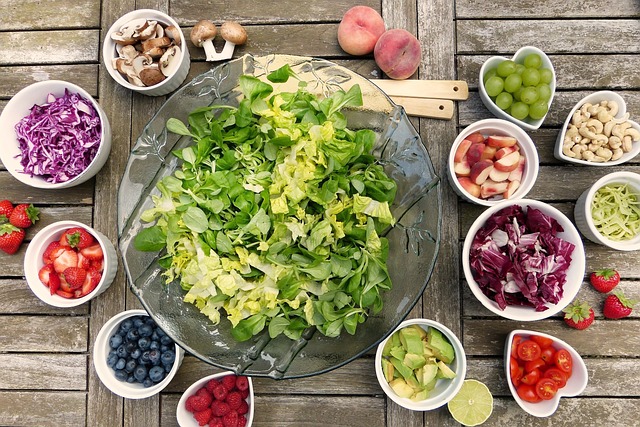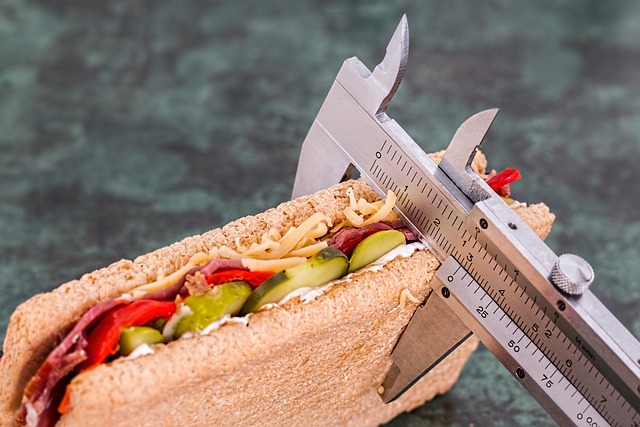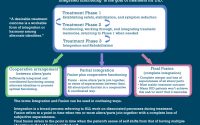Take Time for a Healthy Diet
It can be difficult to make time for healthy eating when busy with work, family commitments, and daily errands. But taking the time to create a healthy diet is time well spent. Not only is it important for weight management, but it’s also essential for reducing the risk of chronic diseases. With a few changes to your daily routine, you can easily develop a diet that is balanced and full of nutrients essential to a healthy lifestyle.
1. Nourish Your Mind and Body with a Healthy Diet
Start the Day in the Right Note, Upgrade Your Breakfast Options:
Starting your day with a healthy, nourishing breakfast is the first step to making sure your mind and body gets the fuel it needs. Begin by opting for whole grain bread, porridge, eggs, and yoghurt instead of processed cereals or doughnuts for a more nutrient-dense breakfast. If you’re snacking in the morning, make it healthier with fresh fruit or protein-rich nuts. All of these options provide sustained energy throughout the day, so you feel energized and motivated to get things done.
Choose Meal Ingredients Wisely:
Maintaining a healthy diet isn’t just about what you consume for breakfast, lunch, and dinner. Rather, it’s also about choosing the right ingredients. Whenever you cook, use fresh and natural ingredients as much as possible for a wholesome meal. Common ingredients to include in your major meals are:
- More vegetables and fruits to get plenty of antioxidants, vitamins, and minerals
- Healthy fatty fish, low-fat dairy, and lean proteins to boost energy levels and help with muscle growth and repair
- Oatmeal, quinoa, and legumes that keeps you full and sustained for longer
- Nuts and seeds as an excellent source of healthy fats, fibre, protein, and micronutrients
These foods provide more than just nutrition. They also offer gastronomic delight with the vibrant colors, flavors, and textures – nourishing for both your mind and body.

2. Discover the Benefits of Eating Well
As it turns out, eating well does more than just keep you slim. Eating a nutritious and balanced meal can help you lead healthier, more energized lifestyles. Not only can eating well help you maintain a healthy weight, but you’ll find many more benefits!
Foods rich in vitamins, minerals, and all of the essential nutrients can:
- Strengthen your immune system – Nutrient-rich foods equip your body with the tools necessary to fight illnesses.
- Improve your cognitive function – Getting the right nutrients can help keep your brain sharp.
- Improve your digestion – Eating foods with prebiotics and probiotics can help your body digest food and fight funky GI issues.
- Lower your risk of disease – Eating certain fruits and vegetables may reduce the risk of chronic conditions.
Enjoying nutritious meals is a great way to give your body the fuel it needs to run optimally. Set yourself up for success by stocking up on nutrient-rich, delicious ingredients and get ready to reap the rewards!
3. Strategies to Make Healthy Eating Easier
Plan Ahead: Eating a healthy diet doesn’t have to be complicated. Planning ahead can be the key to keeping it simple and enjoyable. Plan out your meals for the week – grocery shopping will be quicker and you won’t be tempted to go for take-out. Prepare meals in bulk and freeze them ahead of time to save even more time.
Buy Healthy Alternatives: Making wholesome food choices can be easier when healthier ingredients are within arm’s reach. Stock your refrigerator and pantry with healthy items like vegetables, fruit, lean protein, whole grains, and low-fat dairy products. Indulge in treats like nuts or dark chocolate every now and then, but try to keep these items in moderation. Most importantly, don’t be too hard on yourself if you don’t stick to your diet every single day; life is too short for that!
4. Tips to Create a Balanced and Nutritious Diet
Eating a balanced and nutritious diet is key to well being. Eating a varied assortment of whole foods helps supply your body with the vitamins and minerals that it needs. Here are some tips to help you eat a more nourishing diet:
- Embrace Variety: Don’t limit yourself to a couple of foods or even a few food groups – the possibilities are endless! To get the most nutrients, rotate through different types of food to ensure you get the vitamins you need.
- Go for Whole Grains: Whole grain foods such as oats, barley, quinoa, and brown rice are healthier and higher in protein than refined grains. They contain more vitamins, minerals and fiber, so make sure you get enough of them in your diet.
- Fill Up On Fruits and Vegetables: Eating a variety of fruits and vegetables is essential to a healthy diet. They are low in calories yet high in vitamins, minerals and fiber. Having a rainbow of colors on your plate from fruits and vegetables will help ensure you get the best mix of nutrients.
- Watch Your Portion Sizes: Portion control is important to maintaining a healthy weight. Eating larger portions will add too many calories to your diet. Avoid overeating by planning your meals ahead of time and using portion control containers.
- Replace Processed Foods: Processed foods like white bread, crackers, cookies, chips, candy and soda are low in nutrients and usually contain too much sugar, salt and fats. Instead, swap these out for healthier sources like fruits, whole grain cereal, nuts and beans.
Achieving a healthy and balanced diet does not mean avoiding all unhealthy food, but rather not over indulging in it. It also means listening to your body and eating when you are truly hungry. Once you begin to eat balanced, nutritious meals, your body and mind will thank you for it.
5. Take Time for yourself with a Satisfying Healthy Diet
When it comes to having a healthy lifestyle, diet can often be overlooked. As important as it is to stay active, diet is equally important for staying healthy. Eating the right things and maintaining a balanced diet can ensure that you have the energy you need to take on each day.
Here are five tips to help you take time for yourself and craft a satisfying and healthy diet:
- Have foods that will keep you energized: Fruits, vegetables, and whole grains are a great source of sustaining energy throughout the day.
- Eat balanced meals: Start your day with a healthy breakfast and spread out your meals to keep hunger at bay. Having balanced meals ensures you have enough nutrients.
- Drink lots of water: Drinking lots of water is essential for both physical and mental health. It helps flush out toxins and keep your body nourished.
- Include superfoods: Incorporate superfoods into your diet, like açai, chia seeds, and quinoa. Superfoods are full of antioxidants and essential vitamins and minerals.
- Eat mindfully: Take the time to do nothing else but focus on your meal. Put on some calm music or light a candle to help set the mood. Eating mindfully will help you appreciate and fully enjoy your food.
Making healthy dietary choices is more than just an effective way to maintain physical health — it’s also beneficial in helping you relax and create a feeling of inner peace. Taking the time to invest in yourself and nourish your body with the right foods will ensure it’s functioning at its best.
Asked Questions
Q: What are the benefits of eating a healthy diet?
A: Eating a healthy diet provides many benefits, including a stronger immune system, more energy, healthier skin, better digestion, improved mental health, and a lower risk of developing nutrition-related health problems.
Q: What tips can you offer to help me maintain a healthy diet?
A: The best way to maintain a healthy diet is to stock your kitchen with nutrient-rich foods such as fresh fruits and vegetables, lean proteins, whole grains, and healthy fats. It’s also important to plan your meals and snacks ahead of time and to take some time to enjoy your meals mindfully. Additionally, cutting back on processed foods, added sugars, and unhealthy fats can make a big difference in your overall health.
Q: How often should I be eating healthy meals and snacks?
A: The frequency with which you eat should depend on your individual energy needs and health goals. Generally speaking, eating 3-5 meals and snacks per day that contain nutrient-dense foods such as lean proteins, complex carbohydrates, and healthy fats is a good guideline.
Reducing stress levels and taking the time for a healthy diet can bring about great benefits in your everyday life. Put yourself and your health first by taking the time to create healthy, balanced meals for yourself and your family! A good diet, in conjunction with regular exercise, is the recipe for a happier and healthier life.


